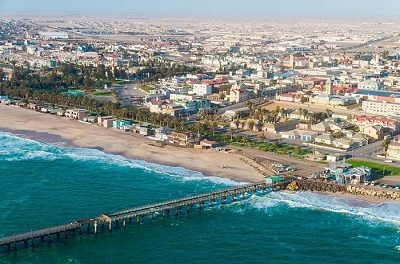
“Women must reap fruits of tourism”

Hon. Netumbo Nandi-Ndaitwah, Minister of Foreign Affairs patron of women in tourism(Photograph by Hilma Hashange)
To celebrate women in tourism, Team Destination Namibia held a one-day indaba for women achievers in tourism. According to Hon. Netumbo Nandi-Ndaitwah, Minister of Foreign Affairs, women are the majority in the tourism industry hence they should benefit proportionately from the fruits of tourism. Nandi-Ndaitwah, who is also Patron for Women in Tourism, urged all women who are already well-established in the industry to inspire and empower others at grassroots level to reach their potential.
“We will only reach our final destination when we find that gender equality is a norm,” said the minister who also made reference to the recent proposed guideline by the SWAPO party to allow 50/50 representation at all party levels.
She further advised women to continue their quest to succeed in every step of their career. “Remember what inspired you to go into this tourism industry and what you will do to drive the industry further,” she informed the meeting.
Although very little research exists on the standing of women in the Namibian tourism industry, conservancies have now made it priority to promote the empowerment of women. A 2011 report on communal conservancies stated that in 67 conservancies, 665 people of whom 148 were women, were employed full-time in these conservancies and in the same year, 603 people were employed exclusively in joint ventures of which half were women.
Craft sales remain an important source of individual income for women and many of them have been able to generate sufficient income for their families and also managed to send their children to university to study conservation and tourism.
At the same rate, many women are now taking up leadership roles in conservancies; a role previously dominated by men. In 2011, women chaired four conservancies and formed 33% of management committee members.











































